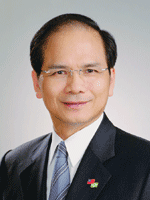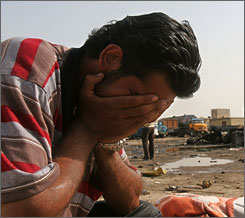Readers of this site will have figured out by now that my perspective on Taiwanese politics and its place in the community of nations tends to dovetail with the positions of the Democratic Progressive Party (DPP). It is my firm belief, as is the DPP’s, that Taiwan has earned for itself, through a political, historical and democratic process, the full set of rights that are granted to officially recognized states.
Despite claims by parties within Taiwan — and certainly in Beijing — that Taiwan is a but a province of China, the different path that it has chosen since 1949, and to a much greater extent since the 1990s, when it became democratic, makes it a state a political entity altogether distinct from the mainland. We need only turn to freedom of the press to see how the two entities differ: in China, matters such as the weather and natural catastrophes are now categorized as state secrets, and reporting on those subjects can lead to media closures and imprisonment.
 Despite the chaotic and, as I have written before, sensationalistic nature of Taiwanese media, the one thing that clearly distinguishes them from their mainland counterparts is the freedom with which they can report events, whether it be arguably tasteless attempts by reporters to interview a child saved from the rubble of a building after it collapsed during the powerful earthquake that struck the nation earlier this week, or unsubstantiated allegations by the China Times that the chairman of the DPP, Yu Shyi-kun (seen left), had called individuals who have been trying to force Taiwanese President Chen Shui-bian (陳水扁) out of office “Chinese pigs.”
Despite the chaotic and, as I have written before, sensationalistic nature of Taiwanese media, the one thing that clearly distinguishes them from their mainland counterparts is the freedom with which they can report events, whether it be arguably tasteless attempts by reporters to interview a child saved from the rubble of a building after it collapsed during the powerful earthquake that struck the nation earlier this week, or unsubstantiated allegations by the China Times that the chairman of the DPP, Yu Shyi-kun (seen left), had called individuals who have been trying to force Taiwanese President Chen Shui-bian (陳水扁) out of office “Chinese pigs.” So when Yu says that, as a result of the China Times’ defamatory piece on his uncorroborated “China pigs” comments, the DPP will boycott the paper by denying its reporters access to the party, the echoes of Beijing censorship cannot but make one pause. Regardless of whether he ever said those words or not — and it seems that he did not — and despite my respect for the DPP, boycotting a media outlet because of uncorroborated reporting, however defamatory, is inexcusable. Yu has a right to sue the newspaper, or to publish a rebuttal — even to voice his discontent publicly — but to ban a media in a liberal democracy is unacceptable, as it sets a precedent which cannot but open the door to an open-ended censorship: it starts with slander of the kind that has sparked the incident, then gradually slides towards anything that the party does not agree with, such as voices in the opposition. Whether the China Times, under its current editor-in-chief, is as Yu claims a mouthpiece for the Chinese Nationalist Party (KMT) is irrelevant: the China Times is a voice among many, and it has a place in the spectrum of Taiwanese media.
In the end, it is the public, consumers of the news, that decides whether it will support the positions of a media outlet. If the China Times acts irresponsibly — as it might have in this case — citizens of Taiwan are mature enough to stop reading it. Like everything else, market forces will dictate whether the China Times can continue to publish slander. If sales go down, something will be done to remedy the situation. Natural selection applies even to the media. Political leaders must have confidence in and show respect for their constituents’ intelligence. But it certainly isn’t their place to dictate what is reported in the news, or who is allowed to do the reporting.
If the China Times indeed published false news, it deserves a slap on the wrist and Yu is entirely within his rights to express his anger. But under no circumstance should a political party, let alone its chairman, decide who has a right to report the news. Unless one lives under a dictatorship or a totalitarian regime. Or in China. It is very ironic that the chairman of the very party that strives so hard to distinguish Taiwan from China would behave in a manner that is so reminiscent of the Chinese Communist Party.
In the spirit of the DPP, democracy and all that Taiwan has miraculously accomplished in the past fifteen years of its liberal democratic existence, Yu should seriously reconsider.


